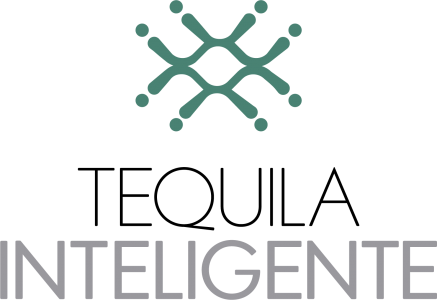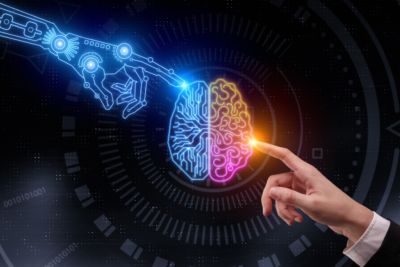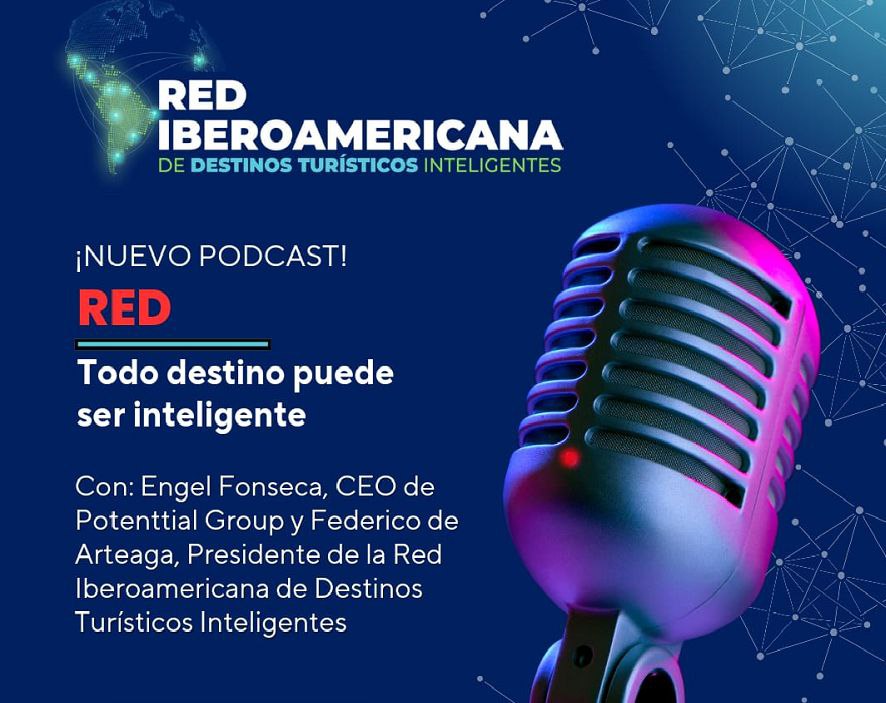
La revolución industrial nos empuja aún más.

Por Sergio Severo. President & General Manager, Latin Americaand Caribbean at Hitachi Vantara.
La cuarta revolución industrial ya es una realidad en todo el mundo. El entorno actual en el que las tecnologías y tendencias como Internet de las cosas (IoT), robótica, realidad virtual (VR) e inteligencia artificial (AI) están cambiando la forma en que vivimos y trabajamos.
Recientemente, hemos estado discutiendo cómo la Industria 4.0 está impactando nuestras vidas y nuestros trabajos. ¿Qué hay de los líderes? ¿Cómo estamos lidiando con estos rápidos avances y cambios constantes entre nuestros equipos? ¿Cuáles son los principales desafíos para cuidar a nuestras fuerzas laborales, mantenerlas satisfechas y, al mismo tiempo, enfocarse en los resultados y tener un impacto cada vez menor en nuestro planeta?
Sé que suena como el último concepto de sostenibilidad triple resultado final (Personas, Planeta y Ganancias), y diría que sí, pero dentro del escenario Industria 4.0.
Para delimitar nuestra conversación de hoy, dentro del concepto People, una de las 3P, creo que es crucial entender a las personas que nos rodean y cómo se enfrentan a toda esta transformación digital.
Con respecto a nuestra fuerza laboral, específicamente, hay 3 puntos importantes para observar y discutir con su equipo cuando esté considerando adaptarse a los desafíos de la Industria 4.0:
Estamos inundados de información como nunca antes: la gran herencia que hemos recibido de la tercera revolución industrial es la información. Si usted es un líder que está abrumado ininterrumpidamente con tanta información, no se preocupe, nuestros equipos, colegas o vecinos probablemente estén teniendo la misma experiencia. Comprender si su equipo tiene estas ansiedades es crucial para brindarles apoyo y ayudarlos a seleccionar qué información debe absorberse y qué puede descartarse.
La automatización puede causar miedo al desempleo: hace muchos años, nuestros abuelos temían perder sus empleos debido a la llegada de nuevas máquinas. Este no es un pensamiento que sucedió solo en el pasado. Si bien la automatización puede desplazar temporalmente a algunos trabajadores, también eleva el nivel de vida de la sociedad al reducir los costos, mejorar la calidad y permitir que las personas se concentren en trabajos de mayor valor. Se están creando nuevos puestos y profesiones, y el trabajador de la Industria 4.0 debe estar preparado para encajar en este mercado. Se espera, en un futuro cercano, que la IA se convierta en un motivador de trabajo neto positivo, creando más empleos que eliminando puestos.
Empatía y discernimiento: ser un líder es mucho más que ponerse en el lugar de los empleados, se trata de tener la capacidad de gestionar bien a las personas y las cosas. Debemos considerar que lo que es bueno para mí, puede no ser bueno para los demás.
El líder que eres.
¿Qué están haciendo las organizaciones para crear una fuerza laboral para la Industria 4.0? Esto es lo que Deloitte solicitó a principios de este año a más de 2,000 ejecutivos de nivel C en 19 países.
Además de comprender el punto de vista de los ejecutivos, Deloitte identificó y dividió a los ejecutivos en cuatro perfiles diferentes. Estos incluyen implicaciones sociales y éticas, la importancia de una visión clara y organizaciones colaborativas, las compensaciones de invertir en tecnología a corto plazo en lugar de a largo plazo, y abordar la brecha de talento.
Las cuatro personas de liderazgo:
1. Supers sociales: líderes que han descubierto cómo hacerlo bien haciendo el bien, generando nuevas fuentes de ingresos desarrollando o cambiando productos y / o servicios para ser más conscientes social o ambientalmente. Social Supers también exhiben un mayor rigor en la toma de decisiones y creen que su fuerza laboral está lista para la Cuarta Revolución Industrial.
2. Decisiones basadas en datos: tienen procesos claros de toma de decisiones y utilizan conocimientos basados en datos. Es más probable que las decisiones basadas en datos inviertan en tecnologías disruptivas, se preocupen por el uso ético de la nueva tecnología y capaciten a sus empleados actuales para acceder a las habilidades requeridas para la Industria 4.0.
3. Impulsores de interrupción: Los que invierten en tecnologías para invertir sus mercados y competidores, y realizan inversiones en tecnología que logran o exceden los resultados comerciales previstos son los Impulsores de interrupción.
4. Campeones de talento: los líderes que están más avanzados en la preparación de su fuerza laboral para el futuro que el resto del campo son los Campeones de talento. Creen que saben qué conjuntos de habilidades necesitan sus empresas y que tienen la composición correcta de la fuerza laboral, y aceptan sus responsabilidades de capacitar a sus empleados para el futuro del trabajo *.
Para mí personalmente, no hay un líder correcto o incorrecto entre los cuatro perfiles. Los líderes eventualmente se adaptan al modelo de negocio de las compañías para las que trabajan. Al final, lo que más importa es saber cómo liderar respetuosamente a las personas para lograr cualquier objetivo, ya sean los objetivos financieros, los compromisos con nuestras comunidades o el medio ambiente.
En América Latina, tenemos un camino desafiante, pero estoy seguro de que estamos listos para seguir junto con los países desarrollados todos los avances que están ocurriendo en este momento y los que están por venir.
English Version.
The fourth industrial revolution is already a reality all over the world. The current environment in which technologies and trends such as the Internet of Things (IoT), robotics, virtual reality (VR) and artificial intelligence (AI) are changing the way we live and work.
Recently, we have been discussing how Industry 4.0 is impacting our lives and our jobs. How about the leaders? How are we dealing with these rapid advances and constant changes among our teams? What are the main challenges in taking care of our workforces, keeping them satisfied, and at the same time focusing on results, while making less and less impact on our planet?
I know it sounds like the late concept of sustainability triple bottom line (People, Planet and Profit), and, I would say that it is, but within the Industry 4.0 scenario.
To delimit our conversation today, within the People’s concept, one of the 3Ps, I think it’s crucial to understand the people who are around us and how they are facing all this digital transformation.
Regarding our workforces, specifically, there are 3 important points to observe and discuss with your team when you’re considering adapting to the challenges of the Industry 4.0:
We are flooded with information as never before – The great heritage we have received from the third industrial revolution is information. If you are a leader who is uninterruptedly overwhelmed with so much information, don’t worry, our teams, colleagues or neighbors are probably having the same experience. Understanding if your team has these anxieties is crucial to give them support and help select what information should be absorbed and what can be discarded.
Automation can cause fear of unemployment – Many years ago, our grandparents were afraid of losing their jobs because of the arrival of new machines. This is not a thought that happened only in the past. While automation can temporarily displace some workers, it also raises living standards for society by reducing costs, improving quality and allowing people to concentrate on higher-value work. New positions and professions are being created, and the worker of the Industry 4.0 needs to be prepared to fit into this market. It is expected, in a near future, that AI will become a positive net job motivator, creating more jobs than eliminating positions.
Empathy & Discernment – To be a leader is much more than putting yourself in employees’ shoes, it is about having the ability to manage people and things well. We must consider that what is good for me, might not be good for others.
The leader you are
What are organizations doing to create a workforce for Industry 4.0? This is what Deloitte asked in the beginning of this year to more than 2,000 C-level executives across 19 countries.
Besides understanding the executives’ point of view, Deloitte identified and divided the executives into four different profiles. These include societal and ethical implications, the importance of clear vision and collaborative organizations, the tradeoffs of investing in technology for the short term rather than the long term, and addressing the talent gap.
The four leadership personas:
1. Social Supers: Leaders who have figured out how to do well by doing good, generating new revenue streams by developing or changing products and/or services to be more socially or environmentally conscious. Social Supers also exhibit greater rigor around decision-making and believe their workforces are ready for the Fourth Industrial Revolution.
2. Data-Driven Decisives: They have clear decision-making processes and use data-driven insights. Data-Driven Decisives are more likely to invest in disruptive technologies, to be concerned about the ethical use of new tech, and to train their current employees to access the skills required for Industry 4.0.
3. Disruption Drivers: The ones who both invest in technologies to upend their markets and competitors, and make technology investments that achieve or exceed their intended business outcomes are the Disruption Drivers.
4. Talent Champions: Leaders who are further along in preparing their workforces for the future than the rest of the field are Talent Champions. They believe they know which skill sets their companies need and that they have the correct workforce composition, and they embrace their responsibilities to train their employees for the future of work*.
For me personally, there is no right or wrong leader among the four profiles. Leaders eventually adapt to the business model of the companies they work for. In the end, what matters most is knowing how to respectfully lead people to achieve any goals, be it the financial targets, the commitments to our communities, or the environment.
In Latin America, we have a challenging path, but I am sure that we are ready to follow along with developed countries all the advances that are happening right now and those that are to come.
Sergio Severo.
Vicepresidente y Gerente General para Latinoamérica y el Caribe de Hitachi Vantara. Miami, USA. Management: Executive with deep planning and execution expertise, Multi-billion Revenue and P&L, entrepreneurship mindset, performance management proven capabilities and success. Solid values and motivational skills, multicultural and multi-geographic background. Spanish, English and Portuguese. Solid financial, engineering and management background. Presentations & media relationship. Customer and Value Driven: C-level customer relationship, Sales, Marketing, Products, Channels, Integrators and ISPs experience. Business Development and Solution selling expertise. Transformations and Change Management Expertise: Corporate and HQ experience, Acquisitions, Mergers, New business models/plans. Vendors and outsourcers management. Success developing teams while increasing efficiency and productivity.


















